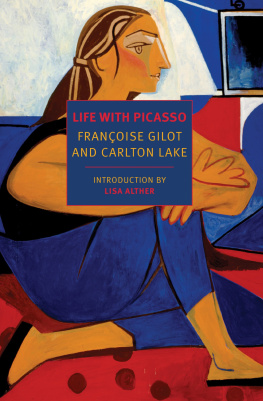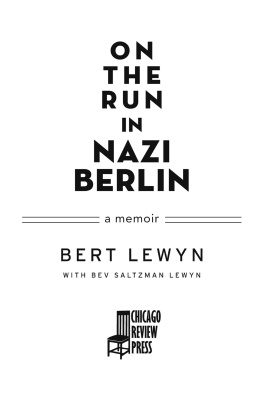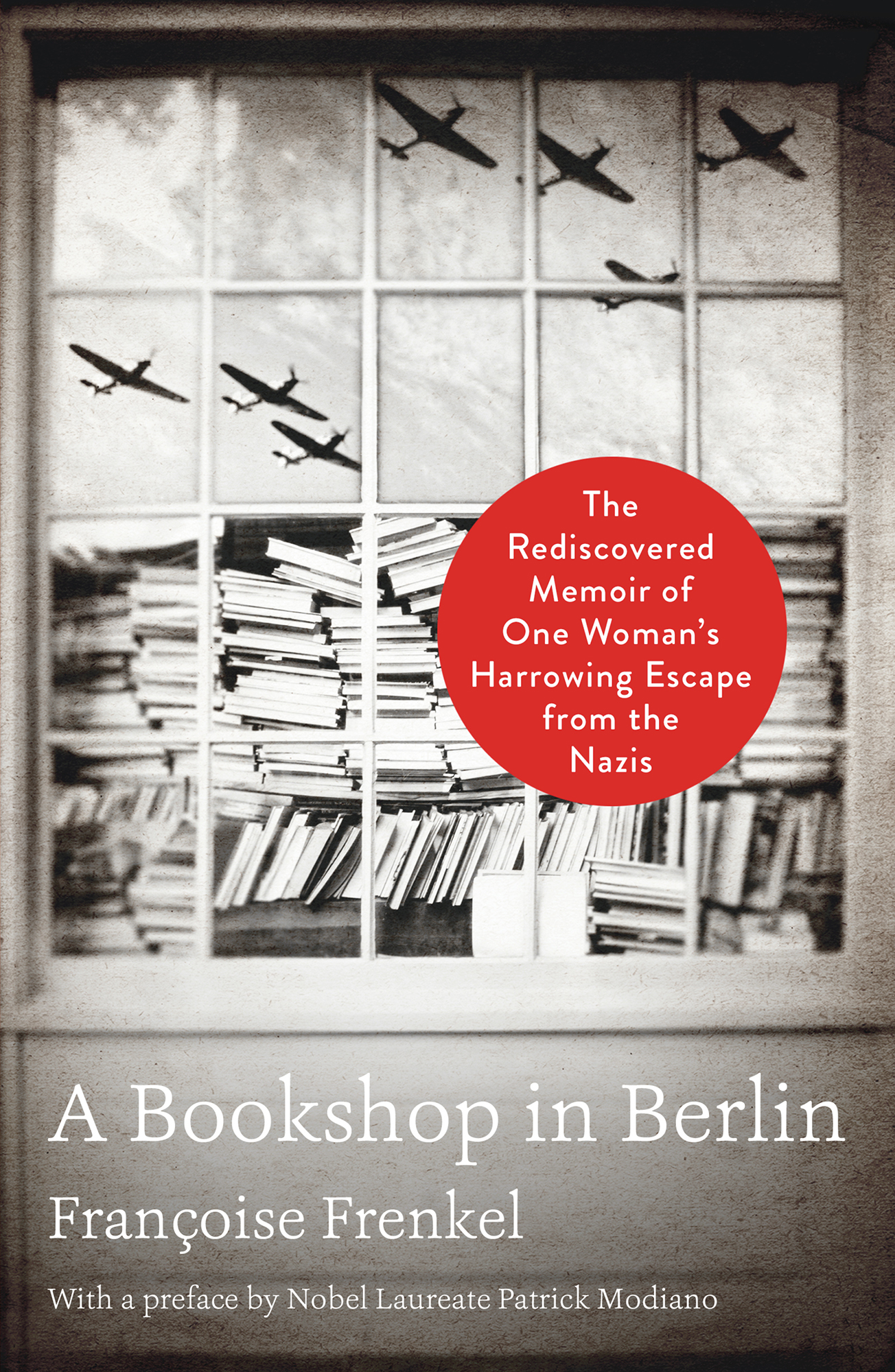Contents
Guide

An Imprint of Simon & Schuster, Inc.
1230 Avenue of the Americas
New York, NY 10020
www.SimonandSchuster.com
First published in France as Rien o poser sa tte by LArbalte Gallimard in 2015
Copyright 2015 by ditions Gallimard for the Preface by Patrick Modiano and the Dossier by Frdric Maria
English translation copyright 2017 by Stephanie Smee
Originally published in English by Vintage Australia in 2017
Previously published by Pushkin Press in 2018
Pushkin Press has searched for the rightful claimants of Franoise Frenkels estate.
Their rights and royalties have been reserved for them by Pushkin Press.
All rights reserved, including the right to reproduce this book or portions thereof in any form whatsoever. For information, address Atria Books Subsidiary Rights Department, 1230 Avenue of the Americas, New York, NY 10020.
First Atria Books hardcover edition December 2019
 and colophon are trademarks of Simon & Schuster, Inc.
and colophon are trademarks of Simon & Schuster, Inc.
For information about special discounts for bulk purchases, please contact Simon & Schuster Special Sales at 1-866-506-1949 or .
The Simon & Schuster Speakers Bureau can bring authors to your live event. For more information or to book an event, contact the Simon & Schuster Speakers Bureau at 1-866-248-3049 or visit our website at www.simonspeakers.com.
Interior design by Kyoko Watanabe
Jacket design by James Iacobelli
Jacket photographs Debra Lill/Trevillion Images; Gettyimages; 123RF
Library of Congress Cataloging-in-Publication Data is available.
ISBN 978-1-5011-9984-4
ISBN 978-1-5011-9986-8 (ebook)
Preface
The copy of No Place to Lay Ones Head that was recently found, Im told, in Nice, in an Emmaus Companions charity jumble sale, had a curious effect on me. Perhaps because it had been printed in Switzerland in September 1945 for Geneva-based publishers Jeheber. That publishing house, now defunct, had in 1942 published Laventure vient de la mer, a French translation of Daphne du Mauriers novel Frenchmans Creek, published in London the previous year, one of those English or American novels banned by the Nazi censors but sold covertly and even on the black market in Paris under the Occupation.
We dont know what became of Franoise Frenkel following the publication of No Place to Lay Ones Head. At the end of her book, she recounts how in 1943 she smuggled herself across the border into Switzerland from Haute-Savoie. According to the note at the end of the foreword, she wrote No Place to Lay Ones Head in Switzerland on the shores of Lake Lucerne, 19431944. Sometimes strange coincidences occur: in a letter sent by Maurice Sachs a few months earlier, in November 1942, from a house in the Orne where he had taken refuge, I happen upon the title of Franoise Frenkels book in the course of a sentence: It appears its rather my path, if not my fate, to have no place to lay my head.
What was Franoise Frenkels life like after the war? These are the scarce pieces of information I have been able to gather about her thus far: she recalls, in her account, the French bookshop she had established in Berlin in the early 1920sthe only French bookshop in the cityand which she apparently managed until 1939. In July of that year, facing imminent danger, she abandons Berlin in all haste for Paris. But in Corine Defrances study La Maison du Livre franais Berlin (19231933) we learn that she ran this bookshop with her husband, a certain Simon Raichenstein, about whom she says not a word in her book. This phantom husband is supposed to have left Berlin for France at the end of 1933 under a Nansen passport. It seems identity papers were denied him by the French authorities, who issued him with a deportation order. But he remained in Paris. He was taken from Drancy to Auschwitz in the convoy of July 24, 1942. He had been born in Russia, in Mogilev, and it appears he lived in the 14th arrondissement.
We find a trace of Franoise Frenkel among the State Archives of the Canton of Geneva in the list of persons recorded at the Geneva border during the Second World War; that is to say, those who were granted permission to remain in Switzerland after crossing the border. That list provides us with her true full name: Raichenstein-Frenkel, Frymeta, Idesa; her date of birth: July 14, 1889; and her country of origin: Poland.
One last trace of Franoise Frenkel, fifteen years later: a compensation claim in her name dated 1958. It refers to a trunk she had left in the Colise storage repository at 45 Rue du Colise in Paris in May 1940, and which was confiscated on November 14, 1942, on the grounds it was Jewish property. In 1960, she is awarded compensation in the sum of 3,500 Deutsch marks for the despoliation of her trunk.
What did it contain? One coypu fur coat. One coat with an opossum collar. Two woolen dresses. A black raincoat. A dressing gown from Grnfelds. An umbrella. A parasol. Two pairs of shoes. A handbag. An electric heat pad. An Erika portable typewriter. A Universal portable typewriter. Gloves, socks, and handkerchiefs
Do we really need to know more? I dont believe we do. What makes No Place to Lay Ones Head unique is that we cannot precisely identify its author. This eyewitness account of the life of a woman hunted through the south of France and Haute-Savoie during the Occupation is all the more striking in that it reads like the testimony of an anonymous woman, much as A Woman in Berlinalso published in Switzerland in the 1950swas thought to be for a long time.
If we think back to our first readings of works of literature, around the age of fourteen, we knew nothing of their authors either, whether it was Shakespeare or Stendhal. But that nave and direct reading left its mark on us forever, as if each book were a sort of meteorite. In this day and age writers appear on television screens and at book fairs; theyre constantly interposing themselves between their works and their readers, and turning into traveling salesmen. We miss our childhood years when we would read The Treasure of the Sierra Madre, written under the pseudonym B. Traven, a man whose identity remained unknown even to his publishers.
I prefer not to know what Franoise Frenkels face looked like, nor the twists and turns of her life after the war, nor the date of her death. Thus, her book will always remain for me that letter from an unknown woman, a letter forgotten poste restante for an eternity, that youve received in error, it seems, but that perhaps was intended for you. That curious impression I had upon reading No Place to Lay Ones Head was also the effect of hearing the voice of somebody whose face one cant quite make out in the half-light and who is recounting an episode from their life. And that reminded me of the overnight trains of my youth, not in the sleeping cars but the seated compartments which used to create a great sense of intimacy between passengers, and where somebody, under the night-light, would end up confiding in you or even confessing to you, as if in the privacy of a confessional. It was the feeling that you would no doubt never see each other again that lent weight to this abrupt intimacy. Brief encounters. You retain a suspended memory of them, the memory of somebody who didnt have time to tell you everything. The same can be said of Franoise Frenkels book, written seventy years ago but in the confusion of the moment, still suffering from shock.










 and colophon are trademarks of Simon & Schuster, Inc.
and colophon are trademarks of Simon & Schuster, Inc.